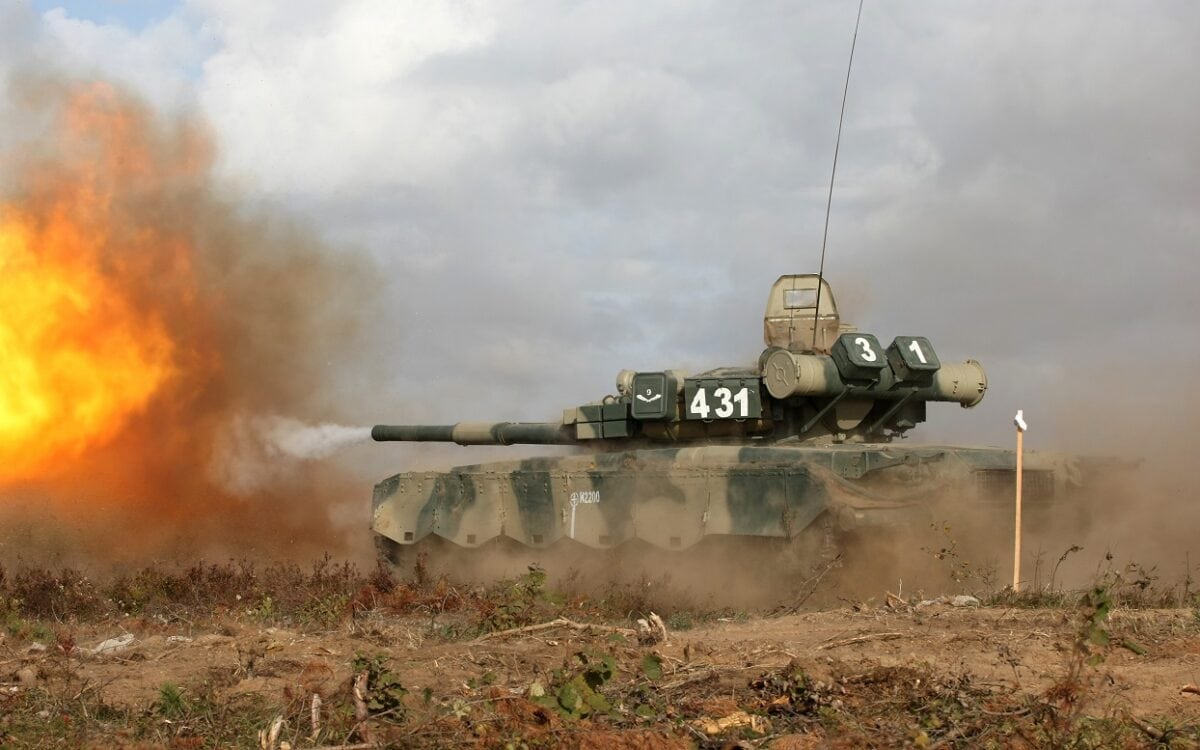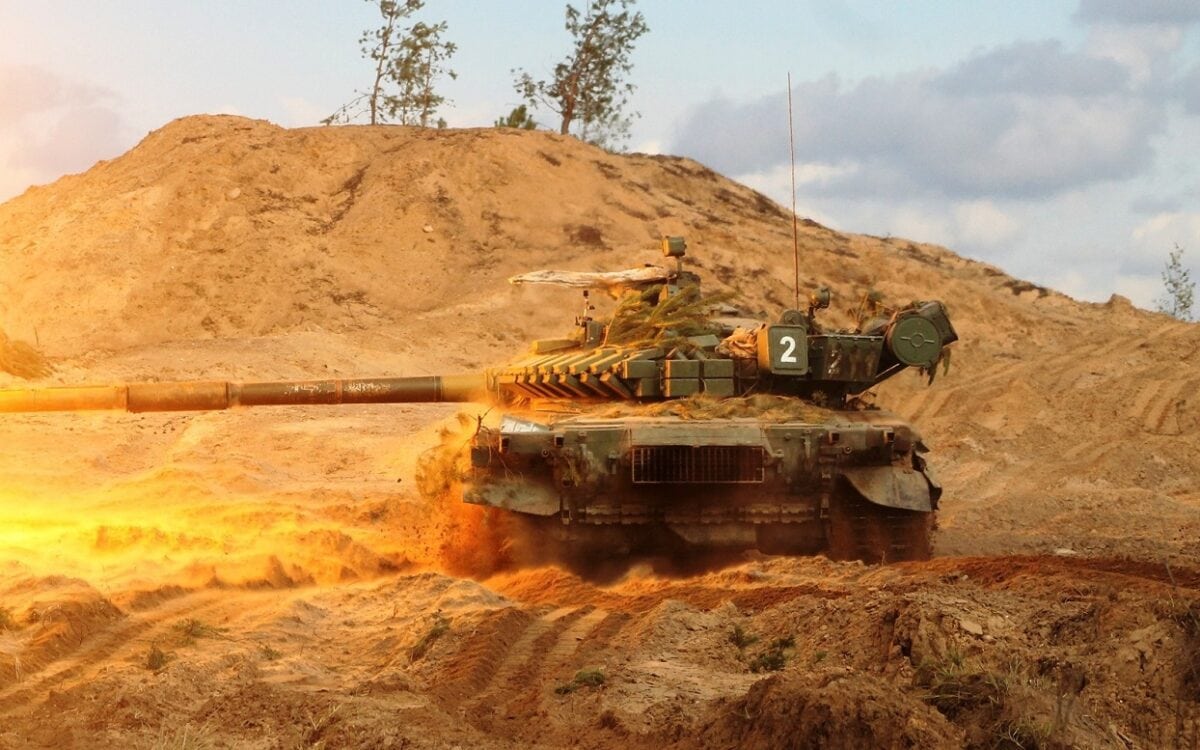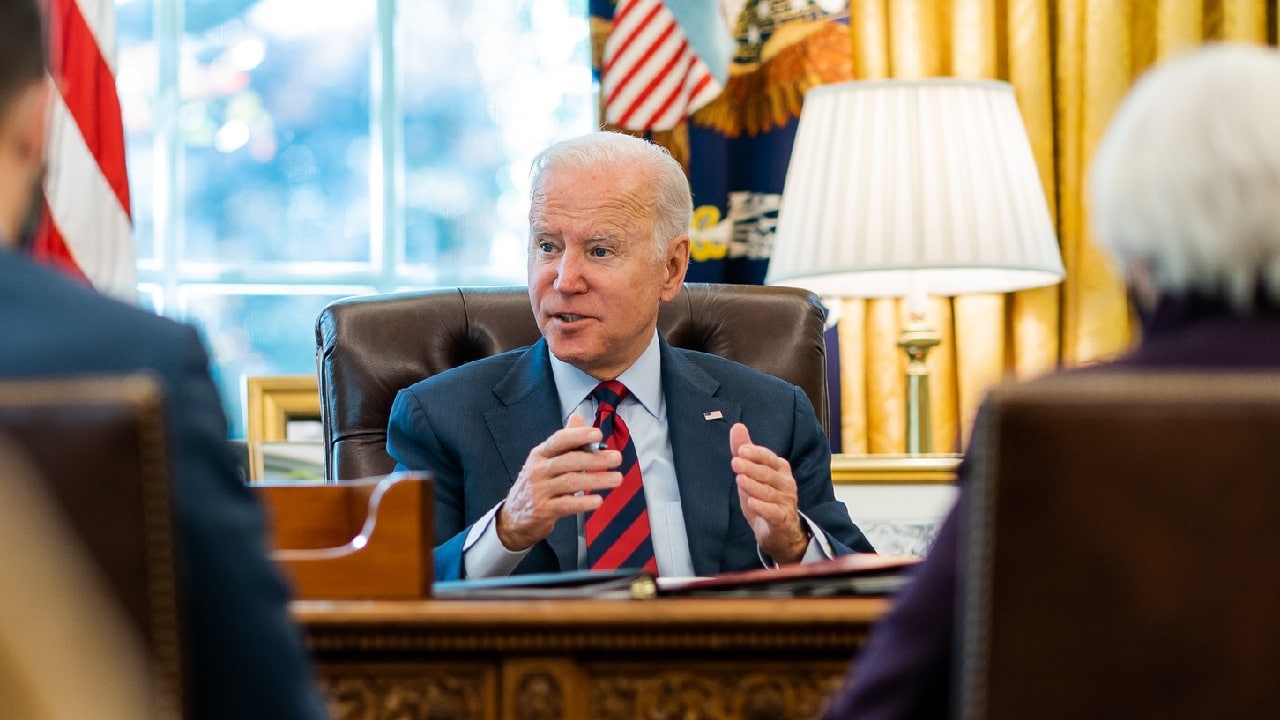Laboring under tight political constraints, US President Joseph Biden is doing a remarkably good job on the Ukraine crisis. Russian President Vladimir Putin still has not ordered an invasion which cable news and western governments have been calling ‘imminent’ for almost two months. Even a delay is a success if a war is at stake, and it looks like Putin’s curious waiting game is due to Biden’s diplomatic surge and information operations against Moscow. It looks like Putin is having second thoughts and might want a way out of a war that could easily turn into a quagmire for the Russian army.
To be sure, it still looks like Putin will attack. And there is little directly Biden can do to stop that. But that is not Biden’s fault. This is no appetite for direct US-Russian conflict; everyone but the most unreconstructed neocons realizes how dangerous that would be. But on the issues adjacent to war itself, Biden is having a good crisis. He is illustrating how to use American power wisely, without the blind rushing-in which characterized the wars of the George W. Bush administration, or the lazy diplomacy and erratic flattery of authoritarians under President Donald Trump.
Honesty
Biden has been refreshingly blunt and honest on Ukraine. He has not danced around the likelihood of war; he has been straightforward in speaking to all the interested parties about the stakes and what the US will do. Particularly, he has been honest that the US will help Ukraine somewhat, but not that much. This is a shame in a way, of course; it would be ideal to shield Ukraine against Putin’s predation. But Biden is right that it is just too dangerous; the geopolitical stakes are too low for the West; and that Western publics simply do not want this war. Biden’s realism is honest, clarifying, and credible.
This contrasts with Trump’s penchant for surprises, exaggeration, and drama as if foreign policy were reality TV, and with all the lying and dissembling from various US administrations about the War on Terror – the Afghanistan Papers, the distortion of intelligence in 2002 before the Iraq War, the use of torture. It also contrasts with the empty promises the US made to Middle Eastern partners, such as the Kurds, anti-regime Syrian rebels, and translators. Just by speaking measuredly and believably, Biden has done a huge service to US credibility.
No Over-Extension
Biden has also not used Ukraine to reassert a massive forward presence of the US military in Europe or Asia. He is not falling for the interventionist argument – also made during his Afghan withdrawal – that the global rule-based order constantly hangs on whether or not the US gets involved in crises in small countries. Biden realizes that Ukraine is a limited crisis. It will be terrible indeed for the Ukrainian people, but it is not some massive tipping point of world order. It is not 1938.
In fact, this is precisely the dilemma Putin himself faces, and Biden is wisely letting Putin stew in his own errors. He fancies Russia a great power on the order of the United States or China, but Russia does not command the resources to prosecute what might well become a years-long quagmire counter-insurgency. Biden realizes that Putin is indeed a gangster who wishes to revise the map of Europe but lacks the means to do that. So there is no need for the US to overreach, expand the crisis, and create the possibility of yet another protracted US conflict, especially when China is rising.
NATO Unity, but Pushing Europe to the Fore
Biden has also kept NATO pretty united. French free-lancing and German malaise have been tricky but nothing along the lines of the Euro-American fracture Putin has been trying to sow for decades. NATO will probably support a Ukrainian insurgency if Russia invades, even if NATO membership for Ukraine is unlikely.
Biden has also wisely avoided over-Americanizing the crisis in order to keep nudging the Europeans to take care of their own security. One of the most disappointing outcomes of this mess is the stark revelation, again, of European geopolitical weakness. Ukraine is on the doorstep of the European Union but 5000 miles from the US homeland. Putin is a gangster and predator the Europeans must live next to indefinitely. Yet the continent’s default reflex, still, is to buck its problems to the Americans. That needs to stop, especially as the US must look more and more to China’s rise in East Asia.

President Joe Biden listens during a G7 Leaders’ virtual meeting Friday, Feb. 19, 2021, in the White House Situation Room. (Official White House Photo by Adam Schultz)
European cheap-riding cripples the ability of the Free World to efficiently mobilize against both Russia and China. Pushing Europe to do more – if only by having the US abjure the lead in Europe – will be one of the big American take-aways of the crisis.
Trolling Putin
Soviet and later Russian use of disinformation campaigns is a well-established tool of Moscow. The US seems, finally, to have learned from that and begun responding in kind. The US intelligence community has been leaking selectively for weeks. Biden and western leaders have been trolling Putin about his intentions, throwing out invasion dates to knock Russian state-controlled media off balance. Western governments have widely noted that a faked Russian provocation – genocide no less – to justify an invasion is likely. The US has also released lots of satellite photography to make clear the Russian army’s movements. Biden has also been forthright about heavily sanctioning Russia if it attacks.
US information operations have clearly frustrated Putin and his subservient media. Moscow has been forced to spend a lot of time knocking down Western claims and claiming that it has no intention of invading Ukraine. Those claims of peaceful intent raise the later audience costs of war. Putin looks like he desperately wants a Western or Ukrainian pretext to invade but cannot find one.

Russian Tank. Image: Creative Commons.

Russian Tank. Image: Creative Commons.
All this information war pushback has also, apparently, stirred anxiety in the Russian military and public over an invasion: Will post-invasion Russia be so sharply sanctioned that it becomes economically dependent on China? Will Russia be kicked out of the SWIFT system? Will Western companies exit Russia? Will the ruble crash? Will a Western-supported insurgency in Ukraine turn into a re-run the disastrous Soviet counter-insurgency in Afghanistan in the 1980s?
Again, Biden’s contrast with Donald Trump’s erratic, lazy diplomacy, and appeasement and flattery of – even manipulation by – dictators like Putin or North Korea’s Kim Jong Un is stark.
What Now?
Putin will likely still invade. Biden cannot stop that, nor can NATO. Putin is so attuned to diminishing perceptions of Russia as a great power, that he may well invade just to demonstrate national toughness, even if he knows the cost-benefit calculus is balance-negative. But Biden, to his credit and within the tight constraints of a wary US public and shirking NATO allies, has substantially raised those costs and may even have delayed the attack through his diplomatic offensive and information warfare. That is quite an achievement.
Dr. Robert Kelly is a professor in the Department of Political Science at Pusan National University in South Korea and a 1945 Contributing Editor. Follow his work on his website or at Twitter.

